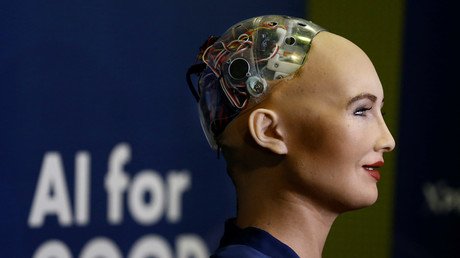Government databases for all citizen DNA? No thanks
Since the advent of DNA testing in the ’80s, the tool has been hailed a silver bullet for crime-solving, with many arguing that governments must collect our genetic code as standard – but such proposals are riddled with problems.
When a woman gave birth to a baby boy at an Arizona nursing facility earlier this year, despite being in a coma for a decade, the debate surrounding DNA databases was reignited. Attempting to solve the crime, police compared the baby's DNA with that of male employees at the health facility. It was a harrowing case, but that’s the thing: It always is a disturbing and chilling event that precipitates calls for us to grant more sweeping surveillance powers to governments and encourage us to give up more of our privacy in pursuit of our safety.
Sure enough, the Arizona case prompted a state lawmaker to propose a bill which would have required large swathes of people “from parent school volunteers and teachers to real estate agents and foster parents” to give up their DNA, by law. The bill was watered down to require DNA “only from professionals who care for patients with intellectual disabilities in an intermediate care facility” – and then altered again to focus specifically on testing samples obtained via rape kits.
Also on rt.com DNA-testing company sparks furor after teaming up with FBI (VIDEO)There is no denying that DNA testing has huge upsides. It has saved people from death row and it regularly solves crimes – but it is not infallible. There is no information more intimate than our DNA and with it, there is massive potential for both mistakes and misuse.
Increasingly, however, the concept of governments creating huge databases of DNA – from all citizens, not just convicted criminals or suspects – has been portrayed as a natural next step, and public policy in many countries has inched more and more in the direction of making it the norm.
The US Congress recently passed legislation which allows police to collect DNA immediately following a person’s arrest. In 2013, the US Supreme Court ruled that police are permitted to take DNA from people before they are even charged with a crime. The same ruling compared DNA testing to fingerprinting or photographing, the kind of comparison that creates the impression that it’s really no big deal.
DNA tests can be wrong
If we are going to hand over the most personal and private information about ourselves to our governments, we would want to be fairly certain that testing is a flawless process and one that never goes wrong. The problem is, that isn’t the case. While DNA testing has indeed saved innocent people from prison, it has also put innocent people into prison.
A British man spent eight months in prison facing charges over a murder he did not commit. In Taiwan, a man was convicted and sentenced to four years in prison for rapes he did not commit. In both cases, DNA “evidence” put these men behind bars.
Everyone's a suspect?
Privacy campaigners have also warned that such databases would create a “suspect society.” In such a situation, rather than innocent until proven guilty, James W. Whitehead argues, “we are all suspects in a DNA lineup until circumstances and science say otherwise.”
It’s not just databases where the DNA could be obtained from, however. Every single day, we are leaving our DNA behind us – on seats, on the rim of a glass, on toilet seats. Your “shed” DNA could already be stored in a database somewhere, albeit without your name, if you have ever left it somewhere a crime happened to take place, leaving it to be swiped up and stored by investigators.
All of our DNA, in the hands of governments, “will complete our transition to a suspect society in which we are all merely waiting to be matched up with a crime,” Whitehead wrote.
Remember when we had that big national conversation in which we all agreed that the consequence for expressing interest in your genealogy was to have yourself and all your relatives entered into a national police DNA database? I don’t either.
— Matthew Green (@matthew_d_green) February 1, 2019
Faking evidence?
This should go without saying, but police and governments should never be trusted implicitly, particularly with something as fundamental and powerful as our DNA. Not only can DNA testing be faulty and erode the presumption of innocence, as we’ve already seen, DNA databases would also be susceptible to various other forms of misuse.
Could DNA databases, for instance, be used to alter a crime scene with the planting of fake DNA evidence? It may sound far-fetched, but some are worried about that very possibility after scientists in Israel in 2009 managed to fabricate “blood and saliva samples containing DNA from a person other than the donor of the blood and saliva.” The scientists “also showed that if they had access to a DNA profile in a database, they could construct a sample of DNA to match that profile without obtaining any tissue from that person.” DNA evidence, the New York Times reported at the time, is “a lot easier to plant at a crime scene than fingerprints."
Also on rt.com It’s frighteningly easy to track someone down via DNA, scientist revealsIt is difficult to even speculate on all the ways such vast, all-knowing databases could be used and abused by governments in the future to make our lives ever more closely resemble a dystopian novel. No doubt there will be ways to abuse such information that in 2019 we can’t even yet fathom or imagine.
Comprehensive citizen DNA databases, while sold by some as a basic must-have crime-fighting tool, would ultimately be just one more infringement on our privacy in an era in which governments and massive corporations already store data about every decision and movement we make online and in the real world.
The statements, views and opinions expressed in this column are solely those of the author and do not necessarily represent those of RT.
















